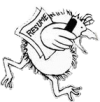Blog
Human resource practitioners, trainers, managers and would be managers give up your regular 7 pm weeknight activity and tune in to Celebrity Apprentice. This is not a commercial and I don’t own media shares. As a human resource practitioner/trainer I have found this program invaluable for observing management styles, group dynamics, re-assessing selection processes and rich pickings for developing training programs. Here we meet a variety of celebrity participants who are confident, knowledgeable acutely aware of their value and celebrate their achievements. It is the sort of leader or manager team members look forward to working with. Or is it? The participants are given the opportunity to lead projects and the results are assessed on how they have met the brief. The projects vary, giving each participant the opportunity to demonstrate their particular expertise as Project Leader and team player. Naming the team is an important part of building team spirit. Team Unity is one of the names chosen. However, when you remove the term celebrity and the fact that it is a TV show, what we find are management styles, attitudes and behaviours commonly found in any private, public and community organisation. What emerges is a slightly more civilised version of William Golding’s Lord of the Flies. What we observe are the following:
- Management styles – micro-manager, know-it-all, self-promoter, leads in title only, inclusive, inflexible;
- Team Player – participates actively, participates on their own terms, provides comic relief, undermines the project leader, attention seeker, stands back and criticises;
- Reflection – Few demonstrated any self reflection – while the blame game was encouraged by the set up, it was possible as a project manager to admit mistakes and say I made some wrong decisions. Only one project manger actually did. The team members were also inclined to blame the rest of the team and the project leader.
- There was no clear correlation between effective project management and results – this was a bit of a surprise.
The most striking aspect to emerge from this exercise is that while each participant brought with them valuable skills and experience, had achieved success in their careers, has worked in and led teams, with few exceptions achieving team success was secondary to demonstrating personal success. If the lessons of this program are taken into the real world of work should human resource practitioners be looking at?
- Re-assessing/re-evaluating the selection and recruitment process for managers/senior managers and Managing Directors,
- Developing structured induction programs for new managers at all levels,
- Implementing structured training programs for managers and/or regularly assessing their management skills,
- Seeking referee reports from team members,
I am looking at doing some more research in this area and would be interested in hearing your comments and experiences. If anyone from Channel 9 reads this article is it possible to get a DVD of the program for training purposes.
© 2024 Impressive Interviews. All Rights Reserved.

